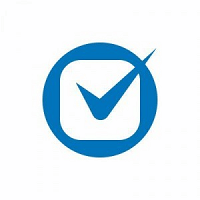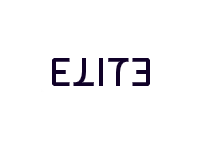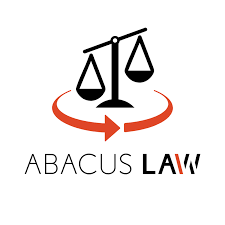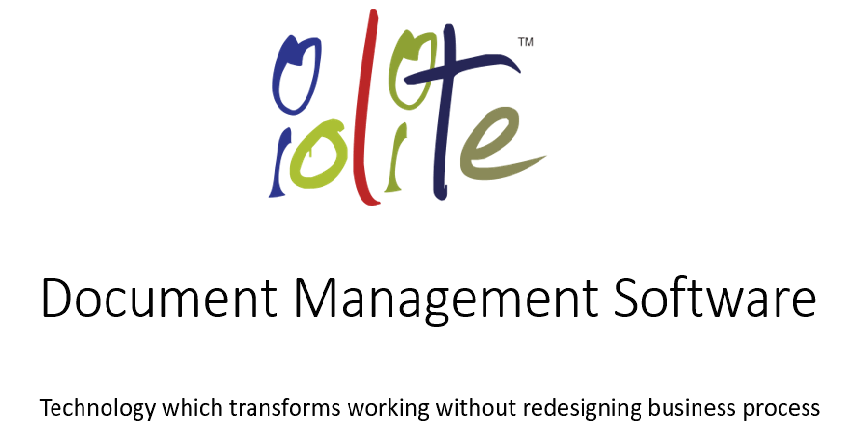What Is Docket System?
An very effective and well-organized method for scheduling, organizing documents, projects, and deadlines is a docket system. It is intended to automate and simplify the workflow and tracking procedures involved in managing different kinds of data. Because it increases productivity, lowers errors, and saves time, this approach is frequently employed in government organizations, enterprises, law firms, and healthcare facilities.
All significant documents are kept in one place and made available to authorized users via the docket system. Contracts, agreements, invoices, project plans, and more may be included in these documents. Physical copies or dispersed files are no longer necessary thanks to this technology, which makes it simple for users to view, edit, and share documents.
Setting deadlines and reminders for tasks and events is one of a docket system's primary functions. This tool guarantees that projects are completed on time and helps users stay on task. By automatically notifying users of impending due dates and significant occasions, the system lowers the likelihood that users will miss deadlines and promotes more effective workflow.
Additionally, a docket system enables users to delegate tasks and duties to team members, which facilitates progress tracking and accountability. This removes misunderstandings and redundant work while improving teamwork and communication. The security features of a docket system are another crucial component.
This technology shields data from loss or unwanted access by storing it in a safe, central location. For companies handling sensitive data, these security procedures are essential to keeping the data safe and secure. The degree of flexibility and integration a docket system offers should be taken into account while selecting one.
While some systems offer interfaces with other software to improve operation, others can be customized to meet particular corporate needs. It's critical to evaluate the needs of your company and select a system that meets them.
What Are The Recent Trends In Docket System?
Businesses and organizations of all sizes have been using docket systems more and more in recent years. The purpose of these systems is to assist users in more effectively and efficiently managing their work, deadlines, and schedules. Buyers should be aware of a few noteworthy changes in the docket systems industry as technology develops further.
The integration of docket systems with other programs and applications is among the most important trends. Integrations with widely used technologies like email, calendaring, document management, and task management platforms are now available in many contemporary docket systems. Because users can access all of their crucial information in one location, this enables a more smooth and efficient workflow. The application of machine learning and artificial intelligence (AI) in docket systems is another new trend.
Automating monotonous operations, monitoring data patterns, and forecasting future occurrences or results are all made possible by these technologies. This can significantly increase a docket system's efficiency and help users manage their schedules more quickly and efficiently. Additionally, there has been an increase in demand for docket systems that are mobile-friendly.
Users increasingly anticipate being able to access their docket system at any time and from any location due to the rise in remote work and the use of smartphones and tablets. Because of this, a lot of docket systems now include responsive designs or mobile applications that make it simple to access and manage while on the road. Lastly, cloud-based docket systems have become more popular.
Nowadays, a lot of businesses are choosing cloud-hosted solutions over conventional on-premise software. This has a number of advantages, including as enhanced data security, automatic upgrades, and simpler accessibility. All things considered, the latest developments in docket systems show a shift toward more intelligent, mobile-friendly, and integrated solutions. Keep these trends in mind when you choose which docket system to purchase, and assess how well each system fits your unique requirements and objectives.
Benefits Of Using Docket System
A docket system is an effective instrument that can significantly improve any company's organization and productivity. There are several advantages to using a docket system in your everyday operations, regardless of how big or small your company is. We will go over the main benefits of utilizing a docket system in this buyer's guide, as well as why it is essential for every business.
1. Centralized Data Management: The capacity of a docket system to consolidate all of your crucial data in one location is one of its greatest advantages. This implies that all of your assignments, deadlines, and papers are readily accessible and manageable from a single platform. Finding important information no longer requires sifting through numerous files and emails because everything is easily accessible in your docket system.
2. Better Organization: Being able to access all of your information in one location also promotes better organization. By classifying and labeling each document, a docket system makes it simpler to find and retrieve them when needed. You can avoid missing crucial deadlines and save a significant amount of time by doing this.
3. Automation: Strong automation tools that help optimize your productivity are included into docket systems. By setting up automated reminders for forthcoming appointments and chores, you may do away with the need for manual tracking. This lowers the possibility of human error in addition to saving time.
4. Real-Time Collaboration: Collaboration is essential in the fast-paced corporate world of today. Team members can collaborate in real time with docket systems, which facilitates job delegation and keeps everyone in sync. This can significantly increase the efficiency and production of the team.
5. Customization: Since every company is different, a docket system can be tailored to your requirements. To arrange your data in a way that makes sense for your company, you may build custom fields, tags, and filters. Your docket system will blend in well with your current workflow thanks to this degree of customisation.
6. Enhanced Security: Security is crucial since the docket system stores important corporate data. Advanced security features like data encryption, access limits, and frequent backups are provided by docket systems to protect your data from online attacks. There is no need for costly gear or setup fees, and you simply pay for the features you require.
Important Factors To Consider While Purchasing Docket System?
Any firm that wants to manage and organize work, appointments, and deadlines may find that investing in a docket system is an essential choice. Choosing the best docket system for your needs might be overwhelming because to the abundance of options available on the market. Here are some crucial things to think about before buying a docket system to assist you make an informed choice.
1. Purpose And Features: Determining your unique needs and the reason you require the program is the first step in purchasing a docket system. Identify the key features your company requires, such as calendar integration, task management, collaboration tools, and reporting capabilities.
2. User-Friendly Interface: A decent docket system should be simple to use so that you and your staff can get used to it right away. Long-term time and effort savings can be achieved by taking into account the user experience and making sure the system is simple to use.
3. Compatibility And Integration: Verifying that the docket system is compatible with your current systems and applications is essential. Your workflow can be streamlined and efficiency increased by integrating with well-known corporate tools like CRM software, email, and project management.
4. Security And Data Protection: Private data, including customer information and project due dates, is stored in docket systems. To safeguard your data from online risks, it is crucial to make sure the program complies with stringent security guidelines, such as data encryption and frequent backups.
5. Scalability: You will require a more comprehensive and effective docket system as your company expands. As your company grows, look for software with scalability options that let you add more users and features.
6. Mobile Access: Having access to your docket system on mobile devices is essential as remote work becomes more common. To manage your assignments and appointments while on the road, look for systems that provide a responsive online interface or a mobile application.
7. Cost And Support: Docket systems are available in a range of price tiers, including yearly or monthly subscriptions. Choose the best option by carefully weighing the features offered by each plan against your budget. Additionally, ask about the software provider's support offerings, including customer care, onboarding, and training.
What Are The Key Features To Look For In Docket System?
An essential tool for companies handling a high amount of assignments, appointments, or cases is a docket system. Workflow is streamlined, progress is monitored, and nothing is overlooked thanks to it. But picking the best docket system for your company might be difficult with so many options on the market. The following are the essential characteristics of a docket system to assist you make an informed choice:
1. Customization: Just as every firm is different, so are its needs and procedures. Seek out a docket system that lets you alter fields, labels, and processes to suit your company's requirements.
2. Accessibility: In the fast-paced world of today, it is essential that team members and business owners have mobile access to appointments and assignments. When paired with a cloud-based platform or mobile app, a docket system allows users to remain productive and up to date while on the go.
3. Integration: You can save time and effort on manual updates and data duplication by using a docket system that easily interacts with other programs and resources like calendars, email, and project management systems.
4. Automation: Time is money, and your team's productivity and efficiency can be increased with a docket system that can automate notifications, reminders, and repetitive chores.
5. Collaboration: To make sure everyone is on the same page when working on various projects, choose a docket system that makes information exchange and collaboration simple.
6. Reporting And Analytics: A docket system with strong reporting and analytics capabilities is necessary to monitor progress, spot bottlenecks, and make data-driven choices.
7. Security: To ensure the safety of your data, make sure the docket system you select has the right security features, including encryption, access limits, and frequent backups.
8. User-Friendly Interface: A user-friendly interface facilitates better team acceptance and saves training time. 9. service and Updates: To guarantee that the system is current and that any problems are promptly fixed, pick a docket system that provides dependable customer service and frequent updates. By taking into account these important characteristics, you can select a docket system that fits the particular requirements of your company and aids in streamlining processes, increasing productivity, and eventually fostering success.
Why Do Businesses Need Docket System?
A docket system is necessary for businesses to maintain efficiency and organization in their day-to-day operations. A docket system, sometimes referred to as a case management system, is a piece of software that facilitates efficient case, project, and task administration for enterprises. Businesses can keep on top of their workload and produce results efficiently by using it to track and monitor their operations, deadlines, and progress. The following are a docket system's main advantages:
1. Optimizes Workflow: By serving as a central location for all of a company's duties and cases, a docket system aids in workflow optimization. Employee collaboration and efficiency are facilitated by the ability to assign projects, create deadlines, and monitor progress.
2. Boosts Productivity: Companies can enhance productivity by streamlining their procedures using a docket system. Employees can concentrate on more important work because the system automates repetitive activities, minimizes manual paperwork, and removes the possibility of human error.
3. Information Organization: All pertinent information about a case or project is gathered in one place by a docket system. Businesses can more easily access and share information because to its comprehensive picture of all communications, papers, and deadlines, which enhances teamwork and communication.
4. Enhances Time Management: A docket system aids in the efficient management of time, which is a crucial resource for companies. In order to guarantee that deadlines are fulfilled and no time is wasted, it enables organizations to prioritize activities, set reminders, and track the amount of time spent on each activity.
5. Promotes Cooperation: By giving teams a place to collaborate, a docket system promotes collaboration inside an organization. It makes it simple to assign tasks, share documents, and communicate, which enhances productivity and teamwork.
How Much Time Is Required To Implement Docket System?
The size of the company, its existing systems and procedures, and the complexity of the Docket System itself are some of the variables that will affect how long it takes to implement. Implementing a Docket System successfully can take a few weeks to several months on average. First off, the organization's size and structure will have a big impact on how long it takes to adopt.
Compared to larger firms with intricate workflows and numerous divisions, smaller organizations with fewer personnel and simpler processes would be able to deploy a Docket System faster. Second, the implementation time will also be impacted by the systems and procedures that are currently in place. Because it will take more time to connect and streamline the new system with the old ones, organizations with manual and antiquated processes may take longer to adopt a docket system.
Finally, the installation time will also be impacted by the Docket System's inherent complexity. It could take longer to set up and configure certain Docket Systems in accordance with the particular requirements of the company because they contain more sophisticated capabilities, integrations, and customizations.
To make sure the Docket System is operating properly before going live, the installation process often consists of multiple steps, such as data migration, user training, and testing. To guarantee a successful and seamless implementation, it is essential to provide sufficient time for each step and involve all pertinent parties.
What Is The Level Of Customization Available In Docket System?
One important consideration when selecting a docket system is the degree of customization it provides. Customization enables you to modify the system to fit the unique requirements of your company and workflow, which improves productivity and effectiveness. What degree of flexibility is possible with docket systems, then? Depending on the particular software you select, it can vary significantly.
Nonetheless, the majority of docket systems now on the market include a great deal of customization, enabling you to make the system uniquely yours. At the most basic level, customization usually entails adding, editing, and removing system fields and categories. This implies that you can arrange your docket based on the particular case categories, due dates, and assignments you have. Additionally, dockets may be easily categorized and located by adding custom tags.
Furthermore, certain docket systems allow for more complex changes, like the creation of unique reports, templates, and procedures. You may automate tedious processes and create reminders for crucial deadlines with bespoke workflows. You can save time and work by using templates to construct predefined dockets for common case types. Additionally, you can view and analyze your data in a way that best fits your business needs using customized reports.
Additionally, certain docket systems even allow for layout and user interface customization. This makes it easier for you to navigate and utilize the system by allowing you to customize how information is displayed and arranged.
In the end, the software you use will determine how much flexibility is possible in a docket system. When assessing customization choices, it's critical to take your company's demands and objectives into account. Then, you should select a system that provides the degree of modification that best meets your expectations.
Which Industries Can Benefit The Most From Docket System?
In the fast-paced world of today, docket systems have become a vital tool for numerous companies and industries. A consolidated platform for coordinating, planning, and monitoring different tasks, events, and appointments is provided by these systems. Businesses must invest in a dependable and user-friendly docket system in light of the growing demand for simplified and efficient procedures. However, which sectors stand to gain the most from this technology? Let's examine it more closely.
1. Legal Services: A lot of court dates, deadlines, and client meetings are handled by law companies and legal departments. They can prioritize and manage these duties with the use of a docket system, which will guarantee that no crucial dates or deadlines are overlooked. Additionally, it provides the ability to generate comprehensive reports for billing purposes and track billable hours.
2. Healthcare: There is a vast amount of patient data that hospitals, clinics, and other healthcare organizations must arrange and handle. Healthcare workers can streamline their workflow and enhance patient care by using a docket system to keep track of appointments, medical information, and medication renewals.
3. Event Management: From setting up client and vendor meetings to making event plans and keeping track of attendee lists, event planners have a lot on their plate. By offering a platform to track all event-related activities, deadlines, and contacts in one location, a docket system can make these chores easier.
4. Government Agencies: Processing licenses, applications, and permits are just a few of the many duties performed by government offices and agencies that call for meticulous planning and administration. These agencies may effectively manage their workflows with the aid of a docket system, which guarantees that crucial tasks are prioritized and finished on schedule.
5. Education: Academic calendars, deadlines, and a range of events must be efficiently managed at schools and colleges. These procedures can be streamlined with a docket system, freeing up instructors and staff to concentrate on giving their pupils a top-notch education.
6. Real Estate: Having a system in place to handle assignments and deadlines is essential for real estate agents and agencies, since they deal with several clients and properties. To ensure a seamless and effective selling process, a docket system provides a single platform for scheduling client appointments, property showings, and contract deadlines.
7. Human Resources: HR departments are responsible for a number of duties, including administering employee benefits and performance reviews, as well as interview scheduling and new hire onboarding. These procedures can be made simpler with a docket system, freeing up HR specialists to concentrate on staff engagement and growth.
Conclusion
To sum up, every company trying to increase production, efficiency, and organization may gain a lot from the Docket System. It provides a complete solution for organizing projects, deadlines, and meetings thanks to its adaptable features, intuitive UI, and integration capabilities. It can save significant time and resources while guaranteeing that crucial activities are not missed by simplifying procedures and encouraging teamwork.
Furthermore, the Docket System can accommodate the needs and budget of both small enterprises and major corporations thanks to its multiple pricing plans and expandable alternatives. It is also a trustworthy and dependable option for any corporation due to its frequent upgrades and dependable client assistance. All things considered, firms can gain a lot from investing in a docket system, including better time management and higher team efficiency.
It can assist companies in staying on top of their projects and effectively achieving their objectives by centralizing all crucial duties and information in one location. To see the Docket System's potential for your company, take into account its special features and advantages and select the plan that best suits your requirements.

















